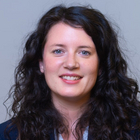Towards a Sustainable World
United Nations Youth Day
Eberz, Isabelle / Samantha Ruppel / Neringa TumėnaitėThe Current Column (2023)
Bonn: German Institute of Development and Sustainability (IDOS), The Current Column of 7 August 2023
Bonn, 7 August 2023. To tackle the climate crisis, there is a need for green transitions. Youth in particular demand this change, and since they will have to bear the consequences of present actions, their input is essential. The United Nations Youth Day, celebrated yearly on 12 August, offers young people a platform to formulate demands on issues of relevance. This year’s theme is "Green Skills For Youth: Towards A Sustainable World".
What are green skills?
Despite their significance, there is no clear definition of green skills. However, to formulate policies and re-design educational formats that foster green skills, it is essential to have an understanding of concept. We base our understanding of green skills on a differentiation between two components. The first includes specific technical expertise and abilities to perform green jobs, often understood as skills for green jobs. The second component comprises transversal skills, which refers to a wide range of knowledge, values, and attitudes that promote responsible and sustainable lifestyles. Transversal skills are a set of abilities that include but are not limited to problem-solving, critical thinking, and emotional intelligence.
As such, green skills can have a transformational power as they play a key role in transitioning societies, economies, and industries towards a more sustainable future. However, green skills must also be taught in a transformative way, equipping learners with the ability to confront challenges in today’s complex world. Transformative learning combined with transversal skills can foster cognitive shifts, that encourage self-reflection to challenge pre-existing worldviews and practices, while creating space for alternative approaches.
Towards education for green skills
Education and skills development are crucial if the much-needed environmental and societal change is to be achieved. Given that by 2030 more than 60 percent of young people will lack the skills required to address these challenges. There are two reasons for this negative development: Firstly, there is a general lack of coherence in policies on skills development and the environment, as these are often discussed separately. Secondly, the current educational systems around the globe largely are not appropriately adapted to teach the necessary green skills. To drive green transition and empower youth with green skills, we require reformed educational systems and well-aligned policies.
The lack of coherence between educational and environmental policies is the result of different priorities, limited awareness, and institutional barriers. There is therefore a need to create platforms for dialogue and collaboration between relevant stakeholders. With the UN Youth Day 2023, the UN creates a space for exchange and awareness building, and provides a starting point for these platforms, where policies and best practices can be shared amongst stakeholders. It will be important for the actors taking part in UN Youth Day to follow up on these platforms and to hold relevant stakeholders accountable. Policies should be further developed with youth movements and indigenous communities, which are directly affected by climate change, and support youth who not only wish to develop their green skills and challenge the status quo by rethinking common narratives. This can happen with the establishment of a cross-sectoral task force. Local youth can gather information on challenges and needs whilst their representatives, together with stakeholders, can than bring these to the national and international level, at which the sectoral task forces operate.
The reform of educational systems is challenging, as these are mostly planned and facilitated on a local level. Still, there are best practices, that can help educational systems to adapt to teach green skills in a transformative way. Global Webinars that are already hosted by the UN could transmit these best-practice on a more frequent basis and make better use of local Education for Sustainable Development networks that work towards a transformation in their respective countries.
Multi-stakeholder learning includes engagement with diverse groups. “This will give participants more exposure, motivation and exchange opportunities to learn from each other” (Aményon AKAKPO, YFES Services, BMZ African-German Leadership Academy Alumnus). Embodied and empathetic learning helps to build awareness of our surroundings by developing awareness for oneself and others. It requires creating room for self-reflection and learning from others through e.g. active listening, role-play, or activities with and in nature. Finally, finding blind spots is key to facilitate learning processes that help identify the gaps in knowledge and understand why these gaps exist. This includes critically questioning the dominance of specific types of knowledge and incorporating decolonial approaches as well as engagement on several levels to tackle the hidden structures and mechanisms underlying educational systems.
Isabelle Eberz is a cultural scientist and works in the BMZ African-German Leadership Academy at the German Institute of Development and Sustainability (IDOS) in Bonn.
Samantha Ruppel is a political scientist and head of the BMZ African-German Leadership Academy at the German Institute of Development and Sustainability (IDOS) in Bonn.
Neringa Tumėnaitė is a PhD candidate at SOAS University of London, a member of the Pool of European Youth Researchers at the EU-CoE Youth Partnership and the Director of Humanity Consulting. Her research focuses on the quality of youth participation in decision-making within Europe’s external policy-making on climate action and peace-building.



